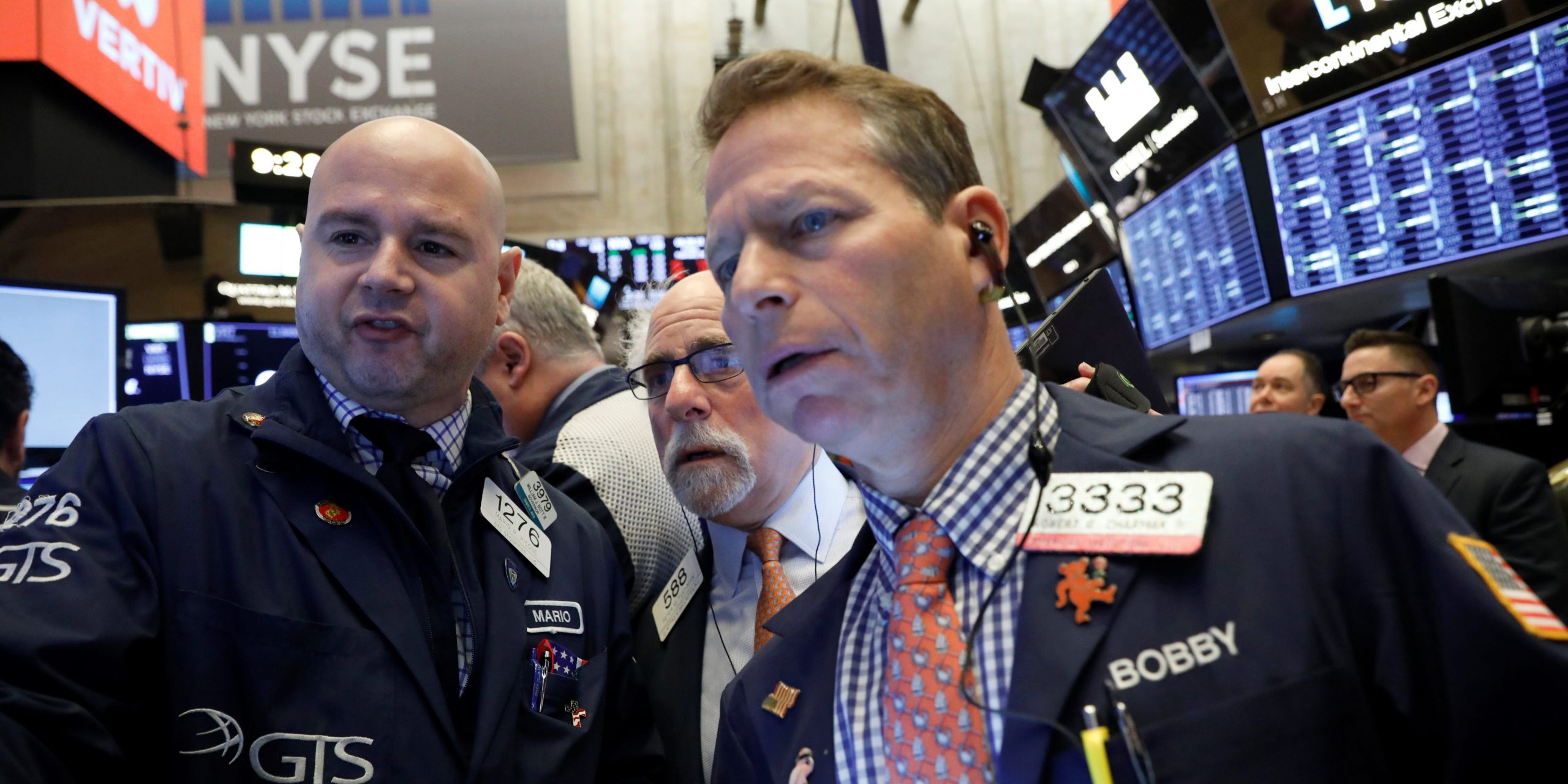
Reuters
- Few would have predicted the COVID-19 pandemic would upend the stock market at the beginning of 2020, including Wall Street forecasters, who issue their predictions near the start of every year.
- It’s no surprise then that a review of Goldman Sachs’ forecast for 2020 show that just two out of their 10 predictions were correct.
- Here are the investment bank’s predictions from the start of 2020 and how they actually compared to the reality of an unprecedented year.
- Visit Business Insider’s homepage for more stories.
The COVID-19 pandemic upended Wall Street’s forecasts for 2020, with a massive decline in the stock market followed by a strong recovery and surge higher that few saw coming.
The wild ride for markets in 2020 was highlighted in a note by Goldman Sachs on Monday, with the firm reviewing its predictions at the start of the year and comparing them to what followed after the coronavirus buffeted markets.
The questions put into perspective the previous reality investors operated in prior to the COVID-19 pandemic, and the answers serve as a reminder that even the most well-informed predictions are vulnerable to the chaos of a black swan event.
Here are the 10 questions Goldman Sachs posed at the start of the year and their answers as the market enters the last stretch of 2020.
1. Will the average US tariff rate increase meaningfully?
Goldman Sachs' answer: No
Verdict: Correct
Tariffs were at the top of mind for investors at the start of 2020 after a tit-for-tat trade war between the US and China escalated throughout 2018 and 2019. Even the US and Europe exchanged tariff increases in 2019. But the COVID-19 pandemic upended the idea of imposing tariffs on countries as economic survival amid stay-at-home orders became the number one priority. The average US tariff rate declined to 2.7% today from 3.1% at the end of 2019, according to Goldman Sachs.
2. Will additional federal fiscal stimulus be enacted before the 2020 election?
Goldman Sachs' Answer: No
Verdict: Incorrect
The COVID-19 pandemic and ensuing economic collapse spurred Congress to pass trillions in fiscal stimulus, including direct paychecks to Americans.
3. Will business investment accelerate?
Goldman Sachs' Answer: Yes
Verdict: Incorrect
A trade deal between China and the US in early 2020 led analysts to believe that less trade uncertainty would spur investment by businesses, but little did they know a global pandemic would boost uncertainty to record highs.
4. Will growth accelerate above 2%?
Goldman Sachs' Answer: Yes
Verdict: Incorrect
Easing trade war tensions and benign market conditions should have helped spur US GDP growth to above 2%. Instead, the COVID-19 pandemic led to GDP falling an estimated 15% at the bottom in April, according to Goldman Sachs.
5. Will the economy enter recession in 2020?
Goldman Sachs' Answer: No
Verdict: Incorrect
A deep but brief recession hit the US economy in 2020 as the COVID-19 pandemic led to a wave of stay-at-home orders and business restrictions, crippling the economy.
6. Will the unemployment rate fall below its 50-year low of 3.4%?
Goldman Sachs' Answer: Yes
Verdict: Incorrect
The US unemployment rate surged to 14.7% from 3.5% in just two months as the labor market cratered in the first few weeks of the pandemic. Even further, the Bureau of Labor Statistics estimated that the true unemployment rate hit 19.5% after correcting for a classification error, Goldman highlighted. The unemployment rate has since fallen to 6.7% as of November.
7. Will wage growth continue to pick up?
Goldman Sachs' Answer: Yes
Verdict: Incorrect
Prior to the pandemic, job growth was double the pace of trend for labor supply growth, meaning workers were in demand. With workers being in demand, their leverage to negotiate higher wages increases. That was a prime environment for wage growth to continue rising in 2020, but a surge in unemployment quickly suppressed that scenario.
8. Will core PCE Inflation accelerate meaningfully?
Goldman Sachs' Answer: Yes
Verdict: Incorrect
A collapse in demand due to economic uncertainty amid the onset of the COVID-19 pandemic led to a steep drop in inflation from February to April, according to Goldman. But core inflation could mount a strong bounce in 2021, with Goldman expecting an inflation rate above 2% next spring, the note said.
9. Will the Fed cut again?
Goldman Sachs' Answer: No
Verdict: Incorrect
The Fed was one of the first to act in terms of providing monetary stimulus to the economy, with Fed Chairman Jerome Powell cutting the Federal Funds rate to near 0% on March 15. And while the Fed has remained opposed to the prospect of negative interest rates to further stimulate the economy, the central bank also does not expect interest rates to increase until at least 2023.
10. Will the Fed formally adopt average inflation targeting?
Goldman Sachs' Answer: Yes
Verdict: Correct
After nearly two years of study, the Fed decided in August to recalibrate its inflation targeting to a 2% average.
